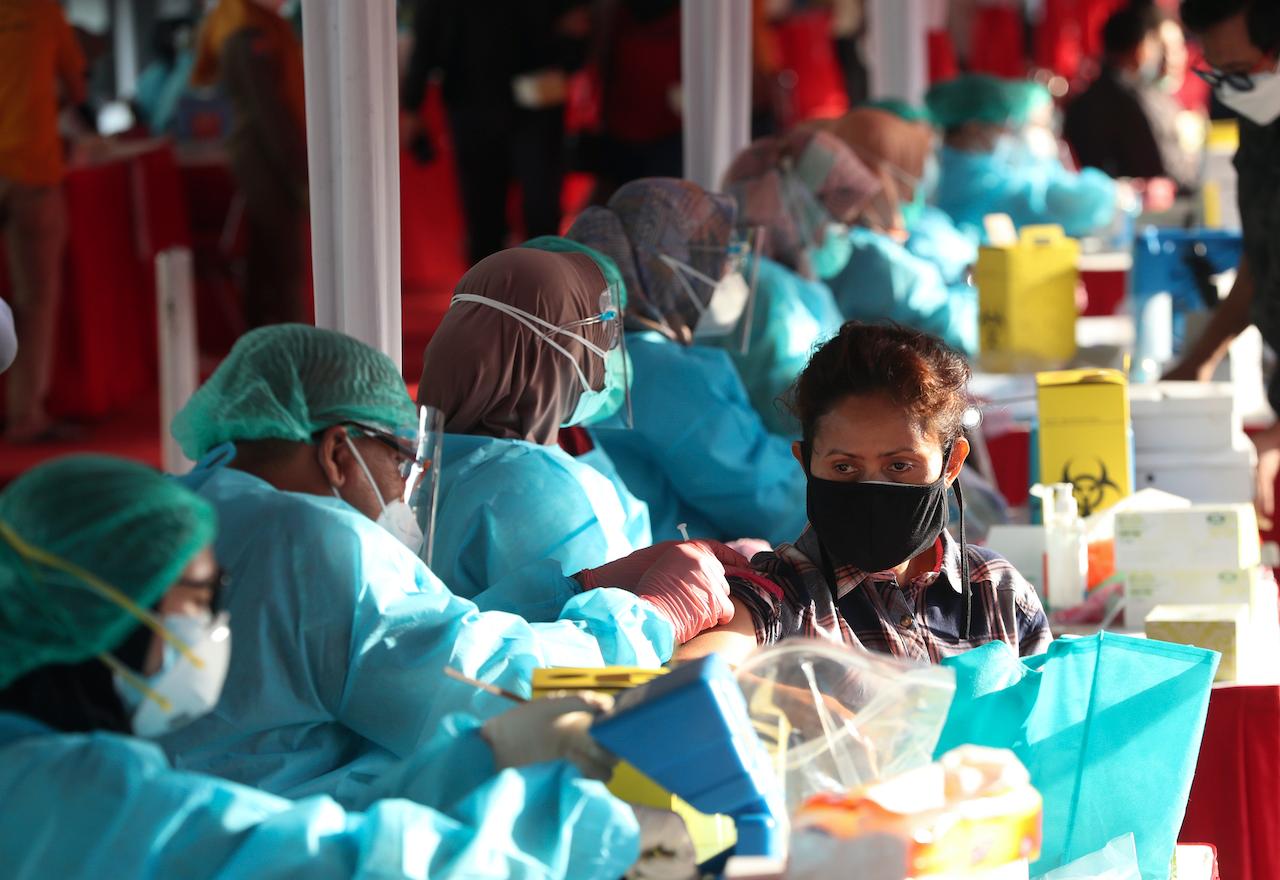Indonesia announces lockdown in Java and Bali as cases surge
The International Federation of Red Cross and Red Crescent Societies say the country is 'teetering on the edge of a Covid-19 catastrophe'.
Indonesia has announced a lockdown for two weeks on its main island Java, as well as the tourist destination of Bali.
The announcement by President Joko Widodo comes as the country battles multiple outbreaks and aims to reduce the number of cases from 20,000 a day to below 10,000.
Indonesia recently recorded two million Covid cases, attributed to increased holiday travel and the Delta variant. However, experts are warning that the case numbers are potentially much higher, because of severely inadequate testing outside Jakarta.
Under the new rules, all staff working for non-essential businesses will have to work from home, and distance learning will be implemented for all school students.
Malls, places of worship and public leisure facilities like parks will also be shut, with dining-in banned at all restaurants.
Businesses in the health, security and energy industries have been deemed critical and will be allowed to run at 100% capacity which means all employees can go to work.
Others like financial services have been deemed essential and can run at only 50% capacity.
Indonesia has had the worst outbreak in South East Asia, with just over two million positive cases and 57,000 deaths so far.
The International Federation of Red Cross and Red Crescent Societies said on Tuesday that the country was “teetering on the edge of a Covid-19 catastrophe”.
Sudirman Said, secretary-general of the Indonesian Red Cross said “hospitals were full to the brim and oxygen supplies critically low”.
Last month, authorities banned domestic travel across the sprawling archipelago at the end of Ramadan, in an attempt to curb what is known as “mudik” – the practice of migrant workers travelling back to their hometowns to celebrate Eid with their families. But many flouted the rules.
There have also been rising concerns that the spike in cases is due to the more transmissible Delta variant, first detected in Java in late May.
The Indonesian Medical Association has said that so far 949 health workers have died from Covid-19.
Local authorities said this month that more than 350 health workers who were already vaccinated had caught Covid. Data checks by BBC Indonesian service found that of these deaths, at least 20 doctors and 10 nurses had been fully vaccinated with the Sinovac vaccine, CoronaVac.
Indonesia has mainly relied on the Chinese vaccine in its inoculation drive, which is ramping up this week. Only about 13 million people out of its 270 million population have been fully vaccinated so far.
The outbreaks have concerned many citizens, such as 40-year-old Malika who lives in the capital Jakarta. She told BBC Indonesia she no longer permits her child to leave the house.
“I’m very worried, especially now. I heard that there are so many children infected by Covid-19 in Jakarta,” she said.
“In the past I didn’t give it too much thought but now I couldn’t say such a thing.”
Subscribe to our newsletter
To be updated with all the latest news and analyses daily.
